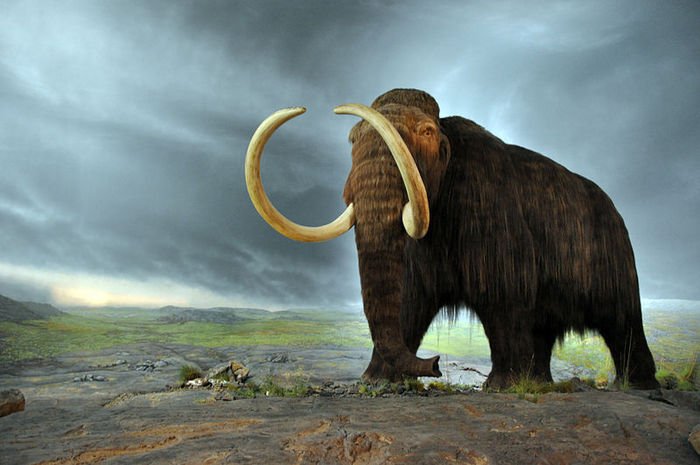Reconstruction of a woolly mammoth in a Canadian museum. Credit: Flying Puffin, Wikipedia, Creative Commons
LONDON, Sept. 11 (UPI) -- Climate change, not human hunting, largely drove the world's woolly mammoths out of existence when they could not evolve and adapt, European researchers say.
Research led by the Natural History Museum in London analyzing ancient DNA suggests the numbers of the huge animals fell as the ice age warmed, eventually confining the species to small, isolated habitats.
Researchers said they believed mammoths proved to be sensitive to the impact on their habitats caused by climate change.
"Climate change squeezed them down to small patches and maybe in that situation human hunting could have dealt the final blow," researcher Adrian Lister told The Daily Telegraph.
At one time millions of mammoths roamed Earth from Western Europe to the northern part of North America, reaching there from Eurasia by an ice bridge across the Bering Strait.
An analysis of DNA from 88 samples of mammoth bone, tooth and tusk suggests a warm period of climate caused populations to decline and become fragmented, researchers said.
"We found that a previous warm period some 120,000 years ago caused populations to decline and become fragmented, in line with what we would expect for cold-adapted species such as the woolly mammoth," lead study author Eleftheria Palkopoulou at the Swedish Museum of Natural History said.
Mammoths became stressed when it got too warm, not directly because of the temperature but because of the effect on their habitat, researchers said.
It is likely that had much more of an impact on their numbers than human hunting, Lister said.
"It is very hard to find evidence of the mammoth being hunted; there are only a handful of fossils which have direct evidence such as marks from a spear head.
"So although we can say for sure that humans did hunt them, it would be quite a leap to say that they did so to such an extent that caused them to become extinct -- at most it would have been the final straw," he said.















